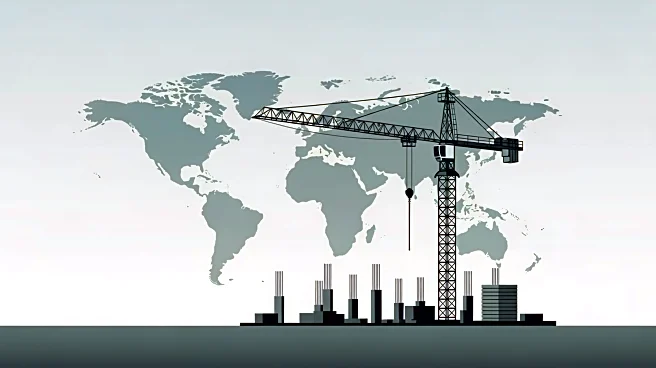What's Happening?
The hotel construction industry in the United States is experiencing a downturn, reflecting broader global trends. According to recent data, the number of rooms under construction in the U.S. has decreased by 8.8%, totaling 138,922 rooms. This decline
is part of a larger pattern observed across the Americas, where construction activity has dropped by 3.1%. Despite this, the U.S. remains the dominant player in the region, followed by Mexico, Canada, and Brazil. In contrast, Europe is witnessing growth in hotel construction, with a 5.2% increase in rooms under construction, led by the United Kingdom and Germany. The Asia Pacific region, although having the highest number of rooms in construction, has seen a 3.2% decrease, with China leading the construction efforts.
Why It's Important?
The decline in hotel construction in the U.S. is significant as it may impact the hospitality industry, affecting job creation and economic growth in related sectors. The reduction in construction activity could signal a shift in investment priorities or a response to changing market demands. This trend might influence hotel operators and developers to reassess their strategies, potentially leading to a focus on renovation or alternative investments. The contrasting growth in Europe suggests a robust recovery in its travel sector, which could attract more international visitors and investments, potentially diverting business from the U.S. market.
What's Next?
As the U.S. hotel construction industry faces challenges, stakeholders may need to explore new strategies to stimulate growth. This could involve investing in technology to enhance guest experiences or diversifying offerings to attract different market segments. Additionally, monitoring global trends and adapting to changing consumer preferences will be crucial for maintaining competitiveness. Industry leaders might also advocate for policy changes to support construction and development, aiming to reverse the current decline.
Beyond the Headlines
The decline in U.S. hotel construction could have long-term implications for urban development and tourism. As cities evolve, the demand for innovative hospitality solutions may increase, prompting a shift towards sustainable and tech-driven accommodations. This trend could also influence cultural and social dynamics, as the hospitality industry plays a key role in shaping local economies and communities.















